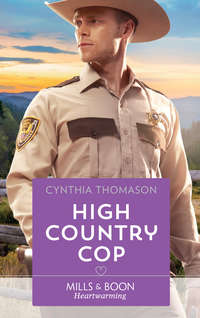
Полная версия
Return of the Wild Son
“What are you talking about?” Mike asked.
“There’s a bakery on Main Street. I stopped there to get a cup of coffee, and you won’t believe who’s running the place.”
Mike waited.
“Marion Malloy and her daughter, Jenna,” Nate told him.
“That’s an interesting bit of news,” Mike said. “I figured rather than relive that night over and over every time they passed the lighthouse those two would get out.”
“I know. After I gave Marion the twelve grand, I thought she might start over somewhere else. The trial was hard on both of them, especially Jenna. She was so young to go through something so terrible.”
“Getting out is more our style, don’t you think?” Mike spat in the dirt, then rubbed his fingers down his jawline. “I have to say, though, dividing up the proceeds from the sale of that fishing boat was the best thing the old man ever did for us.”
They remained silent, each lost in his own thoughts, until Mike suddenly said, “So, did you see the daughter?”
“Yeah, she was there this morning.”
“She married?”
“I don’t know. But I didn’t see a ring.” He wondered why he’d noticed that detail.
“And I guess she didn’t treat you like her favorite person?”
“Person. Creature. Primate.” Nate managed a smile. “I’m not high on her list of living beings.”
“Was she openly hostile?”
“Oh, yeah. Looking into her eyes, I felt the past twenty years slip away. I was suddenly bad boy Nathaniel Shelton again, only Jenna’s contempt was worse than any aimed at me before.”
“Hell, Nate, you didn’t kill her father.”
That simple truth should have put the tragedy in perspective. Sadly, it didn’t for Nate.
And he resented his brother’s attitude. He always had. Two years older, Mike had taken the brunt of punishment for Harley’s erratic behavior after their mom died. It had been Mike who’d bailed Harley out of jail, Mike who’d taken criticism from neighbors and Mike who’d stood up to Harley and argued back when it only pushed the two men further apart. But then Mike left, and at sixteen, Nate had taken over the job of managing the drunken, abusive man his father had become. And Nate couldn’t look at his brother today without feeling that Mike had let him down.
Ironically, before the murder, Nate had begun to see a change in their father. Harley had started to resemble the calm, rational, even loving man he used to be. So once Harley went to prison, Nate made strides in reconnecting with him, in time forging a fragile but reassuring bond.
He glanced at Mike, saw him focus on the lighthouse. As in the past, it was impossible to know what was going on in his brother’s mind. The only contact Nate had had with Mike over the years was a few notes from his wife, a woman Nate had never met. They’d just shared what Nate told himself was a companionable moment. Could this meeting be the start of a reconnection for them?
Mike turned to him and said, “I haven’t got all day, Nate. You want my opinions on this building or not?”
“That’s what we’re here for,” he replied. They started walking toward the lighthouse.
“Just out of curiosity,” Mike said. “Did Harley give you a good reason for wanting this place?”
“He gave me a reason. I don’t know how good it is. He said Finnegan Cove is the only home he’s ever known.”
Mike frowned. “Not true. He’s spent the past two decades in Foggy Creek.”
Nate reminded himself that Mike didn’t know Harley was a different man now. “He blended in at prison,” Nate said. “I suppose he feels if he can make it there, he can make it in Finnegan Cove again. At least he wants to try. And after spending all those years paying his debt, I guess he’s earned the right to live where he wants to.”
“Just count me out,” Mike said. “I left here twenty-two years ago and I don’t intend to come back, even to hang a few new windows. I can’t be around the old man.”
“You’ve made that clear,” Nate said. “For the past two decades.”
“Good. Because I’m doing this for you, little brother. For the years we had together, before it all turned sour.” He held up one finger. “No other reason.”
They reached the back door and Mike opened it. “I don’t imagine he has any competition in trying to buy this place,” he said. “If you make an offer, it’ll probably be accepted.”
“I suppose I will then.”
“Then you going back to L.A.?”
“Sure. Once Dad’s settled, I’ll head back. But as I’ve done all these years, I’ll continue to check how he’s getting along.” He cut off his words.
Mike’s eyes sparked with long-held resentment. “I don’t suppose you’d take any advice from me?”
“Not unless it’s about fixing up old stairs.”
Mike almost smiled. “Okay, then. Let’s look her over. You might as well go into this deal with both eyes open.”
For the next hour, the brothers examined every inch of the Finnegan Cove light station. And their conversation was all about construction.
I N THE HOURS THAT HAD passed since Nate’s unexpected visit to the bakery, Jenna’s anger hadn’t abated. Now, at closing time, she feverishly scrubbed the countertop that her mother had just wiped and vented her frustration aloud. “Did you hear what he said, Mom? Nate Shelton feels sorry for me! What does Harley Shelton’s son know about anything? And how does he have the nerve to come back to this town and say that he pities me! How sorry did he feel when his father hit Daddy with that two-by-four?”
Marion looked away, pretending to stuff napkins into an already bulging chrome holder. Jenna saw her cringe. “I did it again, Mom, opened my big mouth. Forgive me. The last thing I want to do is hurt you, and I seem to do it too often by bringing up Daddy’s death.”
“That’s not why I’m upset, Jenna,” Marion said. “It’s your reaction to Nate this morning. I remember how it was for him. Nate felt terrible about what happened.”
“Fine. So Nate felt terrible,” Jenna said. “He and his friends were always getting into trouble with the police long before Harley…” Her voice caught, and she took a deep breath. “I’m surprised he didn’t end up in a cell before his fifteenth birthday.”
Marion stopped fidgeting and looked at her daughter. “I realize Nate did things you never would have done at his age. But he wasn’t so bad as a kid. He just grew up too fast. When his mother was alive, he was a sweet boy. And then later, after she died, I seem to remember a few times I caught you staring at him when he was bagging at the supermarket. And I recall picking you up at Lighthouse Park a time or two when you and your girlfriends had gone there to watch the older boys, including Nate, play baseball.”
Marion gave one of those knowing smiles that mothers seem to perfect. “You didn’t always have such a low opinion of Nate. Besides, the police never charged him with anything. They picked him up twice—and that was only to scare him. Now all of a sudden, he’s interested in the lighthouse, and you’re dredging up all these reasons why you should hate him.”
Jenna had to admit there was some accuracy in her mother’s interpretation of history. Five years younger than Nate, and with an overactive imagination, Jenna had often fantasized about him. But after he’d become old enough to drive, Jenna heard more about Nate from the police scanner her father had hooked up in their living room than she did from the few ladies in town he’d managed to fool with his smile.
She knew Nate and his friends hung out at Lighthouse Park, showing little regard for the property, littering the grounds with beer cans and fogging up their car windows with whichever girl in town was eager to take a drive.
Jenna always believed Nate and his friends were the main reason the park got a bad reputation. But even then, while Lighthouse Park deteriorated and the station began its sad decline into disrepair, Marion had defended Nate to Jenna, saying he was just acting out his frustrations. Joseph Malloy, on the other hand, saw Nate for what he was—a bad seed who would end up like his father, quarrelsome, mean, and not to be trusted.
“You know,” Marion said now, “you might try being nice to Nate. We don’t know what’s going to happen with the lighthouse.”
She headed into the kitchen and Jenna followed her, saying, “I’ve been thinking about this all day, and I can’t come up with any reason Nate would want to buy the place. But he mentioned Mike, and I’m wondering if he’s the one who’s interested. Though why Mike would come back is an even greater mystery. He left before Nate did.”
Marion organized cans on a shelf. “My daughter the detective,” she said fondly.
“Certainly Mike’s motive for buying the station can’t be better than mine.”
“We’re finished here,” her mom said. She snapped the dead bolt on the back door and turned around. “But one last thing, Jenna. Your motive for wanting to buy the light is as personal and subjective as any could be.”
“What? The building is a mess. I want to tear it down and put something beautiful and lasting in its place.”
Marion walked over, wrapped her hands around Jenna’s arms. “What you really want is to get rid of a horrible memory.”
When Jenna started to protest, her mother wouldn’t let her. “And I understand.” She smoothed her hand over Jenna’s shoulder. “I wish you could have been spared what you saw that night. If I could change anything about the past, it would be that, and your grief. The grief you still feel.”
Jenna looked at the floor, unable to bear the pain in her mother’s expression. They had been through so much, the two of them. Heartache, therapy, starting over. But still, after all this time, Marion didn’t really understand.
Her mother leaned down to peer into Jenna’s downcast eyes. “It’s just a building, honey. Something terrible happened there, but twenty years have passed. You’ve got to let it go.”
“I have, Mom,” she protested. “At least I’m trying. I try every day. But the best way, the surest way to put the past to rest is to wipe it off the face of the earth.” She hoped her mother could see the sense of what she was saying. “And when that station came up for sale, it was a sign I can’t ignore. I was meant to buy that place.”
Marion turned and got her purse out of the locker. “You haven’t told your grandmother your idea.”
“No.” That admission plagued Jenna’s conscience. She didn’t like hiding anything from Hester.
“She’ll find out eventually,” Marion said. “Are you still going to see her tonight?”
“Yes, but I don’t want to argue. I’m bringing her a turkey dinner from the Boston Market. She always likes that.”
“Yes, she does.”
Jenna watched her mother close up shop and, once outside, get into her dependable Ford and drive away. And then her thoughts turned to Nate. She couldn’t help wondering what he had done with his life since leaving Finnegan Cove.
He must have found success on the West Coast. He apparently had enough money to buy the lighthouse. And he looked, well…good. Very good. Successful, assured, as handsome as she remembered. Yes, physically Nate still lived up to her fantasies. She swallowed. Looks could be deceiving.
CHAPTER FOUR
A T FIVE O’CLOCK , Jenna headed to Sunshine House with two turkey dinners. She parked and went into the well-kept colonial building where Hester had been living for four years. She saw her grandmother across the lounge.
She must have been to the beauty shop, for her soft silver hair had been clipped and curled. And she’d applied rouge to her cheeks. From the familiar theme song coming from the TV, an episode of Green Acres was just ending.
Jenna set her package on a coffee table and went to help Hester with her walker. “Hey, Grandma, how are you tonight?”
Hester turned off the TV. “I’m fine, sweetheart. It’s good to see you.”
“I got macaroni tonight instead of mashed potatoes. I figured we could use the change.”
Hester moved carefully across the wood floor. “Always nice to have change,” she said. “Keeps a body young.”
Hester seemed deceptively calm, which usually meant something was up. Jenna set their meal out on the table. “How was your day?”
“Like every other for the most part,” Hester said, “which at my age is a good thing.” She opened a napkin, placed it on her lap and delicately cleared her throat. “Except for hearing that Nathaniel Shelton is in town.”
So that was it. “How’d you find out?” Jenna asked.
“Oh, sweetheart, this is Finnegan Cove. If someone sneezes on one side of town, we say God bless on the other.” She stared longingly at the small salt packets on the table. “Wish I could have some of that.”
Jenna slid them out of reach. “So, what else did you hear?”
Hester stopped a passing aide. “Susan, would you mind getting me real silverware? I don’t like to use the plastic stuff.”
“Sure, Hester. Hi, Jenna,” the woman said as she went into the dining room.
Jenna opened her bag and pulled out the plastic utensils. “Gran?” Jenna said, “You didn’t answer my question.”
“Oh, right. Well, the grapevine tells me that Nathaniel is looking to buy our lighthouse.” She peered across the table, her eyes as clear as they’d been when Jenna was a child and Hester a young sixty-five. “Is it true?”
“Nate came into the bakery this morning,” she replied. “He admitted that he was looking into it.”
Hester swallowed a bite of turkey and washed it down with tea. “What for? He lives in California, doesn’t he?”
“Yes. He said he has his reasons.”
“I knew nothing good would come of this plan to sell the lighthouse. I called Bill myself and told him. The light station should belong to all of us, not the council, and certainly not Nate Shelton.”
Jenna chewed slowly, trying to appear thoughtful. “Well, you have to admit, Gran, that the building is in terrible shape. It would cost a small fortune to fix it up. And now it just sits there, abandoned.”
Hester pointed her silver fork at Jenna. “You don’t give up on something just because it’s old or discarded. I remember when people set their watches by its bell, and boats set their courses by its beacon.”
“I know, Grandma,” Jenna said. She’d once had a similar appreciation for the building. But not anymore. Not since her dad’s blood had stained the floors. “But I don’t think it’s worth saving. It’s too far gone. And I’m sorry to say this, but I don’t think too many people really care any longer.”
“Don’t say that to the Michigan Beacon Society,” Hester said. “They care about all the lighthouses.”
Jenna didn’t believe that was true. She couldn’t remember anyone from that organization ever visiting the Finnegan Cove Light. But she made a mental note to call the society tomorrow to see if the organization was even aware of their small station.
Hester dabbed her lips with her napkin. “The building does need a lot of work. I don’t know who should take over responsibility for the place, but I can’t imagine that it should be Nathaniel Shelton.”
Jenna could always count on her grandmother to see the logic of things. “Exactly, Gran. That’s just what I think—”
“We need to get to the bottom of this,” Hester said. “Send that boy over here to see me.”
Jenna dropped her fork. “What? You want to see Nate?”
“Absolutely. I want to know what he’s doing here, what his intentions are.”
Jenna wasn’t sure how she felt about contacting Nate, but she’d always found it impossible to deny her grandmother anything. “If I see him, I’ll tell him,” she said.
“Not if, sweetheart, when. I understand if you have reservations about Nate, but get over them. I want to see him.”
Jenna sat back and stared at Hester. Her answer was automatic. This was Gran. “Well, okay. When I see him, I’ll tell him.”
B Y THE NEXT AFTERNOON Jenna’s eyes were tired from intensive research on the Internet. She’d hoped to find a legal precedent that would enable her to challenge the sale of the lighthouse to an individual. Maybe somewhere in the annals of Michigan lighthouse history there was a statute that said decommissioned stations could only be sold to conservancy groups. If that was so, then Jenna’s committee might qualify. True, their ultimate goal was not to conserve, but they could get around that detail later by establishing their goals for Lighthouse Park. Unfortunately, her searches had proved futile. In fact, she’d discovered that several of Michigan’s one hundred twenty lighthouses were privately owned. Her only hope was that a purchaser must meet some rigid standards.
Just before five o’clock, she placed a call to Lansing. A pleasant-sounding woman answered, “Michigan Beacon Society. We love our lighthouses.”
You’d have a hard time loving this one if you were me, Jenna thought. She gave her name and location and explained the reason for her call. “So you see, the Finnegan Cove Lighthouse is now being investigated by a private investor who is seeking to buy it.”
“Oh, my, isn’t that wonderful?”
Jenna’s hope deflated. “Wonderful? Don’t you want to know about him, what his intentions are for the light station?”
“Well, yes, ideally,” the woman said. “But in fact, it doesn’t really matter. Most of these little-known light stations fare much better when they’re taken over by private citizens, whether individuals or groups. If this man does any renovation at all, the building will only benefit.”
But I don’t want it to benefit. I want it torn down. And I especially don’t want it in the hands of a Shelton!
There was a pause, during which Jenna heard the shuffling of paper. “Where did you say this is?” the woman asked.
“Finnegan Cove on Lake Michigan.”
“Let me see if I can find files on that building.” After a moment, she said, “Yes, here it is. The Finnegan Cove Light Station located at the juncture of Lake Michigan and Big Bear Channel. Is that right?”
“Yes. The light used to guide barges heading through the channel to Big Bear Lake, where there was a sawmill until the middle of the century.”
“It says here that when shipping dried up, an electric navigational device was put in, making the lighthouse unnecessary.”
“Well, of course. Once lumber was no longer sent across Lake Michigan, the light was decommissioned. It stood for a while as the focal point of a park, but now even that’s gone. No one paid any attention to the lighthouse for years.”
“Oh, my, that is sad,” the woman said. “At least sixty of our stations are in danger of being destroyed, or are disintegrating on their own.”
Especially this one. Jenna figured she was doing the town a favour by tearing down the station rather than watching it slowly and painfully wash into the lake, even if her motives were linked to a personal tragedy. Besides, she wasn’t responsible for the property’s current condition. If anything, Nate and his friends were by abusing the area for years. And Harley. His actions kept all but the most ghoulish sightseers away.
“We consider private purchase the last chance for some of them,” the woman said, “since we don’t get nearly what we need from the National Park Service.”
“So there’s nothing I can do to prevent this private sale?”
The woman seemed astounded at the question. “Why would you want to? Be thankful someone is buying it.”
Jenna knew the conversation had come to an end when the woman added, “We simply have too many lighthouses to save them all. But we’re doing our best.”
“I’m sure you are,” Jenna said.
“E-mail us pictures. We love seeing before and after shots. I’m amazed what some people do with our stations.”
Jenna disconnected. She rested her chin in her hand and stared out the window of her living room. “You’d be amazed at what happened in this light station, too,” she said.
Jenna hurried to get ready for her night class. Tomorrow was Friday, her day off from the bakery. She’d have to implement plan B.
“W HAT ARE YOU DOING here?” Shirley asked when Jenna came into the bakery the next morning at eight o’clock.
“I just need to pick something up,” she said, smiling at the dozen customers having coffee at the counter as she passed into the kitchen. After surprising her mother with a kiss on the cheek, she helped herself to fresh-from-the-oven raspberry pastries.
“Where are you going with those?” Marion asked.
“Isn’t it obvious, Mom? Who, recently returned to this town, likes raspberry Danish?”
Marion watched as she dropped the goodies into a bag. “You’re taking those to Nate?”
Jenna smiled. “Absolutely. I can be nice.”
Marion pulled a loaf of bread from the oven and poked it, testing its doneness. “I think he’ll be as hard to influence as Bill Hastings.”
Jenna folded the top of the bag. “Yeah, I remember how well that worked.” She headed for the exit. “Wish me luck.”
Marion didn’t glance up from her baking. “Somehow I think I should be wishing Nate luck. Don’t be too hard on him.”
Jenna left the bakery and headed two blocks down Main Street before turning onto Sparrow Court. Word had traveled quickly around town that Nate Shelton was back and had taken up temporary residence at Cove Country House, owned by long-time residents Jubal and Bonnie Payne.
Jenna walked three blocks under budding maple and oak trees to the charming three-story home. Like most of the houses on the narrow lanes off Main, it had been built in the early 1900s, at the height of Finnegan Cove’s lumber boom. Jenna was thankful she’d been able to buy a carriage house next to one of the Victorians two blocks over on Hummingbird Street.
She opened the gate in the picket fence and proceeded up the brick walkway to the blue-and-white gingerbread house. Jubal greeted her from a rocker on the porch, where he was having coffee and reading the Sutter’s Point newspaper. “’Morning, Jenna. Did you come to see Bonnie?” He retreated behind his newspaper. “If you came to see me, I don’t know anything about the lighthouse.”
Конец ознакомительного фрагмента.
Текст предоставлен ООО «ЛитРес».
Прочитайте эту книгу целиком, купив полную легальную версию на ЛитРес.
Безопасно оплатить книгу можно банковской картой Visa, MasterCard, Maestro, со счета мобильного телефона, с платежного терминала, в салоне МТС или Связной, через PayPal, WebMoney, Яндекс.Деньги, QIWI Кошелек, бонусными картами или другим удобным Вам способом.








